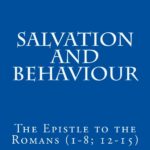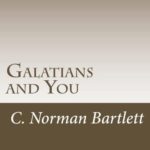Description
The Land of Life and Rest
Studies in the Book of Joshua
Keswick Bible Readings
by
W. Graham Scroggie
The Preparation to cross the River (Chs. 1-2). 9
The Passage through the River (Chs. 3-4). 12
The Purification Beyond the River (Ch. 5:1-12). 19
The Revelation Of the Captain (Ch. 5:13-15). 23
The Record of the Conflict (Chs. 6-11). 26
The Review of the Conquest (Ch. 12). 39
Some Principles of Possessing. 44
Some Preventives of Possession. 53
Some Perils of the Possessor 56
1 Contemplating the Land
THE subject chosen for these studies is the Book of Joshua in the light of the New Testament.
But before going into the details of this book, a few words must be said about the subject in general.
In the first place, it is life that we are to consider. It would be to little profit if we spent time over some intellectual concept, or in the examination of some religious theory, for in the kind of world in which we are living concepts and theories fall a long way short of meeting our need. To alter for our purpose some familiar words, we may say:
’Tis life whereof our souls are scant,
’Tis life, not schemes, for which we pant,
More life and fuller that we want.
And so we are to think about life. But you will observe, it is not life in general of which we speak, but a certain quality of life, the life of rest. Now it is of the utmost importance that we should know what this does, and does not, mean. The word “rest” in Hebrews 4, where nearly all its occurrences in the New Testament are found, is a very interesting one. The noun means stillness, peace, repose, tranquillity, and the verb means to pause, to stop, to quit, to desist, to cease, to refrain; and both noun and verb have a prepositional prefix which means thorough, or thoroughly. The idea, then, is that of inward peace, of spiritual tranquillity, of complete repose, and of this state as a consequence of having quit something, to cease from it. Its significance is both negative and positive.
Further, we shall see that this life of rest is by faith. But what is faith? The writer to the Hebrews asks this question, and answers:
“It is that which gives substance to our hopes, which convinces us of things we cannot see” (Knox);
“It is a well-grounded assurance of that for which we hope, and a conviction of the reality of things which we do not see” (Weymouth).
Faith, then, is neither credulity nor presumption, but is a moral and spiritual principle of action, divinely given to us, if we want it (Eph. 2:8), whereby spiritual realities are brought within the ambit of human experience. As Coleridge has said:
Faith is an affirmation and an act
That bids eternal truth be fact.
But there is one more point of great importance, on which repeatedly we shall have to insist, namely, that this life of rest, which is by faith, is also by effort. The idea that we must be passive and inactive in order to live this life is contrary to the Scriptures. The truth about spiritual rest is not some mystical and mysterious conception that belongs to the realm of dream, vision, and rapturous elation, but is something which must be won and held by costly effort. The writer to the Hebrews says:
“We must strive eagerly to attain that rest” (4:11): and this word “strive eagerly” is the same as that in Joshua 4:10, where we read that “the people hasted and passed over” the Jordan. From this we see that faith is not a substitute for effort, and that effort can never be a substitute for faith.
The truth about practical holiness has suffered at times, because it has been represented as something that needs not the effort of man for its realization. This, however, is not true. Just because we are rational and moral beings, we have some responsibility for our own sanctification.
Rest is not quitting
The busy career,
Rest is the fitting
Of Self to one’s sphere.
’Tis loving and serving
The Highest and Best!
Tis onwards, unswerving:
And that is true rest.
We are to consider, then, a quality of life which involves a forsaking and a following, and which is entered into and maintained by the faith which is trust in God, and by continuous energetic effort to translate belief into practice, to demonstrate in terms of character and conduct the truthfulness and power of one’s creed.
As we approach the Book of Joshua we should recognize that the story relates to a people who already had been redeemed by blood and by power from Egyptian bondage, and who had been constituted a nation by God, that through them as His instrument He might fulfil His redeeming design for all mankind.
The fact that this book follows Exodus, Leviticus, Numbers, and Deuteronomy, determines its point of view, and shows us that the subject of it is not redemption, but the character and calling of an already redeemed people.
It is this fact which makes the book a suitable subject for our contemplation at this time, for the message of what is known as “Keswick” is not addressed to unregenerate people, though many such are reached by it, but to us who already have had the experience of regenerating grace, but need constantly to be confronted with the implications in life and service of that initial blessing. In one view, every blessing which God has for us is given to us in the moment of our regeneration; but in another view, all those blessings become ours only as by faith and effort we appropriate them.
The inheritance, which is the sum total of blessing, is ours by God’s gift, but the possession is that much of the inheritance which we make our own. It is this distinction which led Joshua to say, after great advances had been made, “there remaineth yet very much land to be possessed” (13:1). What is enfolded in regeneration should be unfolded in sanctification. What is ours should become ours. What is possible should become actual. What is implicit should become explicit. What is potential should become potent. In the Book of Joshua we see in the process of becoming, what ought to be, and we see also why much that ought to have been, never became.
But someone may ask, “Of what value to us today can that be which took place more than twenty-three hundred years ago?” The answer is, that the literal history of Israel had a typical significance. “All these things happened unto them by way of figure,” says the Apostle Paul. The passover, the manna, the smitten rock, the tabernacle, the priests, the sacrifices, the Red Sea, and the Jordan, were all historical types of spiritual realities; and in the Epistle to the Hebrews it is plainly said that Canaan, and the entrance of the Israelites into it, and Joshua their leader, and the experiences of the twelve tribes in the land, all represent truths and experiences which now belong to spiritual life.
“If Joshua had given them rest, God would not have spoken afterward of another day. There remaineth therefore a Sabbath rest for the people of God. Let us therefore give diligence to enter into that rest, that no man foil after the same example of disobedience. We therefore who have believed do enter into that rest” (4:8, 9, 11, 3).
In the Book of Joshua, then, spiritual experiences are reflected in historical events; and this, not in a passage here or there, but in the entire story.
What historically was the land of rest, spiritually is the life of rest. To the Israelites the sphere of rest was a place, but to us, it is a Person, “in Christ in heavenly places” (Eph. 1:3). Christ is our inheritance, as Canaan was theirs, and our appropriation of the Lord is the antitype of their possession of the land. The sphere of the Israelites was earthly, but the believers sphere is heavenly. Their sphere had boundaries, but ours has none. Their enrichment was temporary, but ours is eternal.
What is presented historically in Joshua is set forth spiritually in the Epistles, and what of old was the portion of one nation, is now the privilege of the universal Church of God.
Let us now look briefly at the scope of that which we are to study.
The Book of Joshua is in three unequal but vitally related parts. The tides of these parts are, Entering the Land (chs. 1:1- 5:12); Conquering the Land (dxs. 5:13-12:24); and Possessing the Land (chs. 13-24).
These tides indicate not only the course of the history, but also reveal the spiritual truth which the history enfolds. The spiritual blessing which the history typifies must be entered by an act of faith. That is the subject of part one. Then, the land which we have entered must be fought for; our enemies must be conquered; faith must be backed up by effort. That is the subject of part two. And finally, the land which has been entered and fought for, must be possessed; faith and effort will lead to great enrichment. That is the subject of part three.
The order is progressive. Entrance must precede conquest, and conquest must precede possession. If it be thought strange that we must fight to rest, it is worthy of our notice that the that Epistle to the Ephesians, which is the New Testament counterpart of the Book of Joshua, emphatically connects rest with conflict. There it is saids that we are “blessed with all spiritual blessings in the heavenlies in Christ,” that we are “made to sit together in the heavenlies in Christ Jesus,” and that it is there, “in the heavenlies,” that we are to “wrestle against principalities, against powers, against the rulers of the darkness of this world, against spiritual wickedness” (1:3; 2:6; 6:12). This expression, “the heavenlies,” which occurs five times in Ephesians, has well been defined as “the sphere of the believers spiritual experience as identified with Christ” (Scofield). It is the New Testament equivalent of the land in Joshua. We shall understand this if we keep clearly before us two things; firstly, what every Christian is and has in Christ, from the moment of his conversion; and secondly, what every Christian should become and have in Christ by faith and effort. The first relates to our spiritual standing in Christ, and the second, to our actual state experimentally. Unless this distinction is kept in view our thinking will be foggy, and our endeavors disappointing. The entering, and conquering, and possessing, are the translating into experience of all the blessings which are already ours in Christ.





Reviews
There are no reviews yet.